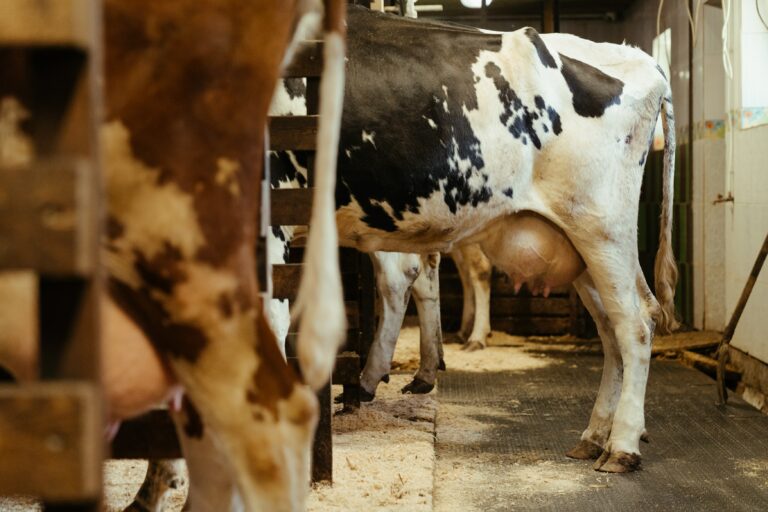
Farming businesses in Kenya: The past 14 years were frustrating to Stanley Lagat. His job saw him only earn a paltry Sh. 3, 310 monthly. Though he was in love with his career, the returns were dismal, with financial strains weighing down on him.
The clerical officer at Mosoriot Teachers’ College (MTC), Nandi County, after re-evaluating his life, realised that the only way he could achieve his goals was by juggling between his job and by having a side hustle.
“I opened my eyes and realised that with my meagre salary, I will not have accomplished what I intended. Today, my salary has only been slightly increased to Sh. 12,000 monthly. I am glad that I kick-started my other businesses early,”
he says. Lagat is the ideal epitome of self-re-branding. Last year, the CPA Two holder completed a degree course in business management at Moi University. He has now established two businesses whose monthly sales can pay his current salary for two years.
Auntie Boss star: How I hit rock bottom, lived in Sh. 100 rent mud house
Once Lagat came to terms that his salary can’t pay him much, he started looking for other ways of getting additional income.
“Since I was always business minded, I did a market survey in my county and found out that there is an opportunity in dairy farming. I began plans to venture into it. At the same time, I planted vegetables and onions for sale in an acre of land I had,”
he says.
Lagat’s start-up capital was an advance of Sh20, 000 he got from his former employer, which was to be deducted from his salary for one year.
“In 2004, I bought a dairy cow which provided me with five litres of milk per day, which I sold the nearby market at Sh15 per litre. The demand for milk was high thus forcing me to buy more milk from other farmers and I could sell up to 100 litres in the market,”
he adds. In a few months, Lagat bought another cow. As his milk supply increased, he won a tender for the product in a nearby school.
“The intended delivery was 100 litres per day. My dairy cows could only produce a few litres. So I sourced the remaining milk from nearby farmers. After another year of good service and reliable delivery to the institution, the tender was renewed,”
he says.
Lagat took the tender agreement and the business plan to Equity Bank, Kapsabet branch, where the bank agreed to finance his business with a loan of Sh100,000, repayable within one year.
“Since then, I have been taking a loan yearly for the last seven years.”
Due to my creditworthiness, the bank has been increasing my loan limit which now stands at Sh. 500, 000 which I took late last year. I have used the same loan to increase my investments,” he adds. In 2011, the now 36-year-old ventured into poultry farming. He has been rearing chicks from day one old onwards.
“I have over 300 chicken yearly. As of now, I have 100 kenbros, 100 layers and 50 kienyeji chicken,”
he notes.
“I also have cows that produce over 80 litres of milk daily which I sell at Sh40 per litre. And have sold over 30 cows at an average of Sh. 40, 000 each,”
he adds. Having accumulated more savings, in 2012, Lagat opened his first company ‘Mosfarm Electrical Supplies. Additionally, in January this year, he launched another company Stammco Properties which deals with office and school stationery and printing.
“With a wealth of experience I have gotten from my workplace and the knowledge in business management I acquired from the university, I have what it takes to be a good manager. I can manage the resources I have ranging from human resources and financial resources,”
he says. Lagat, who doubles as the firms acting chief executive, hired his wife as the general manager. She oversees his businesses.
He also has two permanent farm employees, two shop attendants in each company and one salesman who does the marketing and also doubles up as a driver.
“On average I pay them Sh. 6,000 each per month, plus an incentive whenever there is a big catch in profits to boost their morale,”
he says. Lagat spends about Sh. 120, 000 a month for all the businesses — raking in Sh. 140,000 monthly in profit. Lagat cites his major achievement as seeing the business grow beyond his expectations.
“As an accountant by profession, more so computerised accounting, I do the record-keeping myself. From all the businesses (dairy farming, poultry farming, horticulture and the two companies) I have managed to get over Sh3 million in cumulative profits to date. I feel good now because I have built myself a decent house, bought a pick–up and a salon for business and invested in at least five plots of land,”
he says.
“Being a clerical officer at the financial department of the college provides me with an opportunity to create networks, get more clients and keeps me focused,”
he says.
Time management is Langat’s main challenge as he has to juggle between running his own company and being an employee.
“I manage my business between 5:00 am to 7:30 am and from 5:30 pm to 10:00 pm. From 8:00 am to 5:00 I serve my employer who if it wasn’t for him I could not be where I am.”
Farming businesses in Kenya. Farming businesses in Kenya.






Another good example why your current employment won’t make you rich.
I look at this as a very valuable information that youths should pick from. The word “unemployment” should only prick those who have never tried entrepreneurship.
Nice post.
Comments are closed.